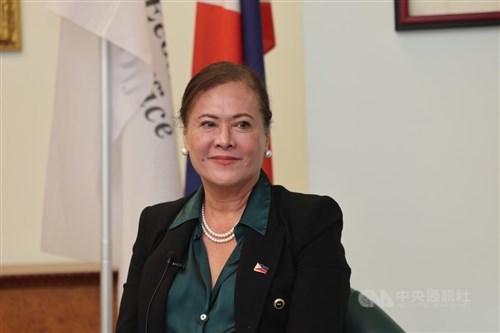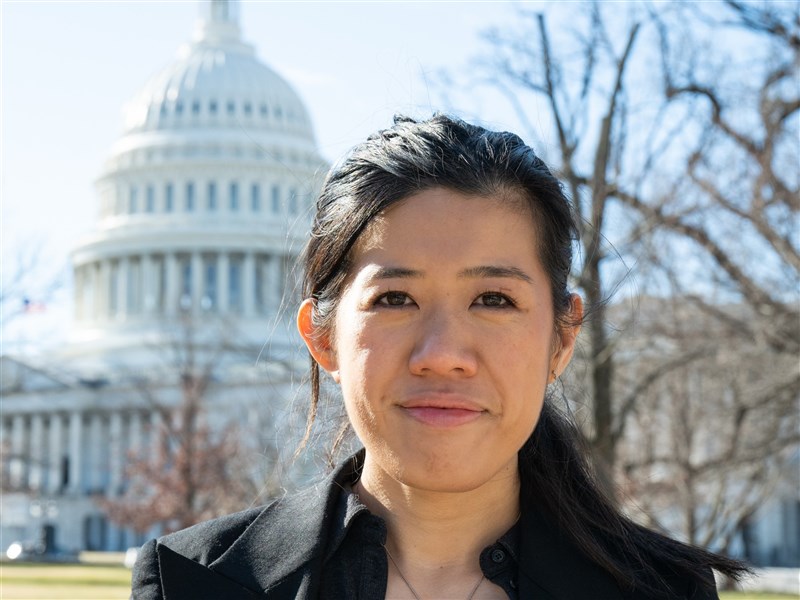INTERVIEW / Tariffs on Taiwan chips won't solve U.S. dependence: Expert
02/14/2025 04:57 PM
John Bolton, former National Security Advisor to U.S. President Donald Trump, said Thursday that imposing tariffs on chips from Taiwan would not alter the reality that the United States is dependent on Taiwan-manufactured chips.
(Full text of the story is now in CNA English news archive. To view the full story, you will need to be a subscribed member of the CNA archive. To subscribe, please read here.)
More in INTERVIEW
-
![Filipino workers' well-being, investment ties top priorities: Envoy]() Filipino workers' well-being, investment ties top priorities: EnvoyCorazon Avecilla-Padiernos, the Philippines' new top envoy to Taiwan, said her priorities are safeguarding the well-being of Filipino workers in Taiwan and deepening economic ties between the two sides.02/13/2026 05:51 PM
Filipino workers' well-being, investment ties top priorities: EnvoyCorazon Avecilla-Padiernos, the Philippines' new top envoy to Taiwan, said her priorities are safeguarding the well-being of Filipino workers in Taiwan and deepening economic ties between the two sides.02/13/2026 05:51 PM -
![Jimmy Lai's daughter slams his 20-year sentence as 'laughable']() Jimmy Lai's daughter slams his 20-year sentence as 'laughable'The daughter of jailed Hong Kong media tycoon and pro-democracy activist Jimmy Lai (黎智英) on Tuesday condemned her father's trial as "extremely unfair" and his 20-year prison sentence as "laughable," a day after the verdict was handed down.02/10/2026 03:35 PM
Jimmy Lai's daughter slams his 20-year sentence as 'laughable'The daughter of jailed Hong Kong media tycoon and pro-democracy activist Jimmy Lai (黎智英) on Tuesday condemned her father's trial as "extremely unfair" and his 20-year prison sentence as "laughable," a day after the verdict was handed down.02/10/2026 03:35 PM -
![Myth of 'good person': Thai writer Veeraporn Nitiprapha on memory and nonconformity]() Myth of 'good person': Thai writer Veeraporn Nitiprapha on memory and nonconformityVeeraporn Nitiprapha was surprised to watch her "kind and nice" friends retreat into a state of chilling indifference, when the Thai government opened fire on Red Shirt demonstrators on April 10, 2010.02/06/2026 08:27 PM
Myth of 'good person': Thai writer Veeraporn Nitiprapha on memory and nonconformityVeeraporn Nitiprapha was surprised to watch her "kind and nice" friends retreat into a state of chilling indifference, when the Thai government opened fire on Red Shirt demonstrators on April 10, 2010.02/06/2026 08:27 PM
Latest
-
Cross-Strait
Taiwan visits to China up 16.86% in 2025, still below pre-pandemic levels: MOTC
02/14/2026 05:17 PM -
Society
Beyond new clothes: Children in need get private LNY shopping session
02/14/2026 04:03 PM -
Business
Taiwan's dairy industry confident against US milk import competition
02/14/2026 03:24 PM -
Society
Taiwan to tackle forced labor issue after US trade deal
02/14/2026 02:38 PM -
Society
Taiwan's national freeway driver lounges: An oasis for weary travelers
02/14/2026 02:02 PM


